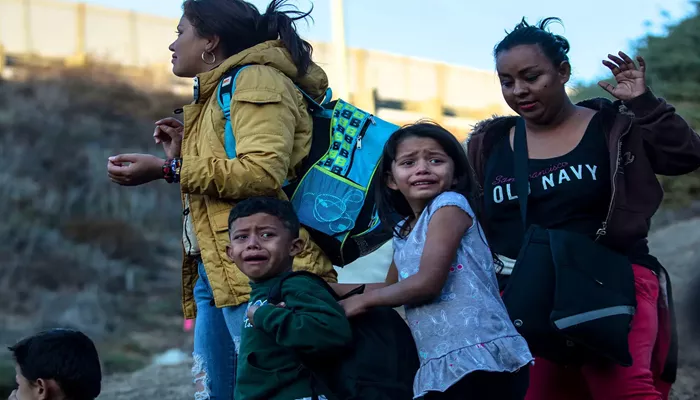Immigration Debate Fuels Violence and Division in the UK.
Immigration is often blamed for low wages and the lack of decent job opportunities in the UK. Many people feel anxious about their neighborhoods, claiming that rapid changes are overwhelming. Concerns have been raised about newcomers arriving by small boats, with some suggesting they do not share “British values.” Others argue that Muslims need to integrate better, implying a divide between “them” and “us.”
These views reflect a long-standing political narrative that must be confronted, especially in light of recent violence. Over the past two weeks, hotels housing asylum seekers were set on fire in Rotherham and Tamworth. Additionally, a racial checkpoint was established in Middlesbrough, and immigration advice centers were targeted by far-right groups.
While mainstream politicians often condemn these actions as the work of a small group of extremists, they fail to recognize the broader political climate that has enabled such violent racism. This climate has not emerged solely due to figures like Stephen Yaxley-Lennon (Tommy Robinson); it has deeper roots in political discourse. Politicians must reflect on their roles in shaping this environment.
The political “center” typically responds to far-right extremism by distancing itself from its harsh rhetoric while still conceding to the core arguments regarding immigration. After the last general election, former Prime Minister Tony Blair advised current Labour leader Keir Starmer to celebrate the positives of immigration while also advocating for “control” measures. Although this advice may seem reasonable, it contributes to the harmful idea that fear of immigration is a valid concern and that reducing immigration will alleviate this fear.
This notion of “legitimate” concerns about immigration is misguided. Immigrants are not responsible for an economic system that favors the wealthy while neglecting the poorest. Immigration is not a significant factor in low wages or job insecurity. In fact, research shows that areas with low immigration often had a high percentage of voters for Brexit, motivated at least partly by anti-immigrant sentiments. Mainstream politicians and parts of the media have perpetuated these fears, often depicting non-white communities, especially Muslims, as cultural threats.
Acknowledging that these concerns are unfounded does not mean dismissing them outright. It is possible to engage with individuals holding these views without validating their beliefs. Politics should aim to persuade people to see alternative perspectives, and assuming this cannot be done is both patronizing and dangerous.
The government has opportunities to reshape this narrative by incorporating the history of empire and migration into school curricula. It should actively counter racism in the media, among opposition parties, and within its own ranks. Additionally, it could improve people’s lives by dismantling “hostile environment” policies and creating safe travel routes to the UK—one of the few effective solutions to the dangerous Channel crossings. Other measures could include lowering visa costs, improving housing, simplifying complicated Home Office processes, and ending exploitative temporary visas, allowing individuals to enter the UK under fair conditions and remain if they choose.
There is no excuse for inaction. The recent riots reflected violent racism fueled by populism. This is not merely a response to economic desperation but also an expression of racial hatred. Many working-class individuals, including minorities, oppose such politics. Creating a fairer society would provide an alternative to the xenophobic allure of the far right.
Achieving this change requires significant shifts in policy. Currently, the Labour government appears to be preparing for budget cuts, with the party previously criticizing the Conservative approach as too lenient on immigration. However, they should take inspiration from the vibrant anti-racist demonstrations that promote a more positive vision for the UK.
The reasons for the recent violence are complex and cannot be solely attributed to immigration debates. However, the rhetoric surrounding immigration must change. The narratives of “legitimate concerns,” commitments to “stop the boats,” and promises to implement immigration controls have all contributed to the current climate. If politicians seek to understand the roots of far-right violence, addressing these issues is essential.


